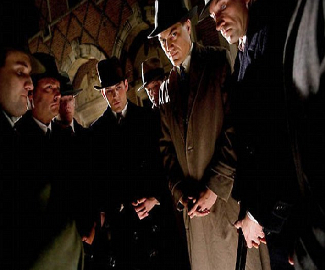
New Jersey lawmakers, who have perpetually mollycoddled Atlantic City’s gambling hold—Boardwalk Empire Style—and the millions of dollars it generates in tax revenue, are now willing to share the love with struggling racetracks and push toward legalization of online gambling in their state.
A growing consensus across party lines is arguing that spending millions of dollars revamping Atlantic City while leaving bankrupt racetracks to fend for themselves and denying the revenue potential of online gaming is not the answer. “We can no longer afford to keep our heads in the sand and pretend that we do not have direct competition to our Atlantic City casinos in Pennsylvania, Connecticut and New York,” said Assemblyman Ralph Caputo, a member of the Regulatory Oversight and Gaming Committee. “We have to explore other avenues of gaming revenue.”
Overturning History
Increased competition from casinos in neighboring states coupled with the sluggish economy has put Atlantic City in a five-year slump. In addition, horse track betting in the state has plummeted 74 percent, according to the New Jersey Thoroughbred Association. This tremendous drop in revenue has lawmakers pushing for online gambling, sports wagering and video slots to compete with legalized gambling in the other states.
Last week, the Senate State Government, Wagering, Tourism and Historic Preservation Committee heard testimony from casino and horse racing executives in support of sports betting. Democrat Caputo and three Republican legislators urged New Jersey Gov. Chris Christie to reconsider his opposition to video lottery terminals outside Atlantic City. Proponents of slot machines at the Meadowlands racetrack in New Jersey argued that they can generate $500 million to $700 million in net revenue for the state.
“The states all along our borders have slots and other forms of convenience gaming located at their racing facilities,” said Assemblyman Declan O’Scanlon. “It’s time New Jersey began thinking along those lines before we see farms downsize or close.”
A federal ban imposed in 1992 must be overturned for sports betting to be legal in the state. New Jersey could have joined Nevada, Delaware, Oregon and Montana in gaining an exemption from the 1992 ban had the state Legislature acted within a year, but it failed to do so. Though Gov. Christie has opposed sports betting, citing the federal ban, he hasn’t indicated what he will do if voters try to lift it.
Making Compromises to Boost Revenues
At the hearing, Sen. Raymond Lesniak reintroduced legislation legalizing online gaming in Atlantic City and at an off-track wagering site. In an effort to make the bill agreeable to Christie and other opponents, Lesniak added a provision prohibiting restaurants, hotels, bars and other businesses from advertising online gaming to keep them from becoming unregulated gambling halls. The bill also gives a portion of casino profits to the state’s racetracks to help out in the current slump.
“Online gaming will be a huge boost for the casino industry,” Lesniak said. “It can also be a temporary savior for our horse racing industry until we get sports betting at our casinos and racetracks.”
Lawmakers argue New Jersey will suffer if the remaining racetracks don’t get financial help. They cite a 2007 study by the Rutgers Equine Science Center that found the horse racing industry provides NJ with $1.1 billion in annual revenue, creates 13,000 jobs and accounts for 176,000 acres of open land.
Do you think New Jersey should invest money into their struggling racetracks, or reinvest it in Atlantic City? Let us know in the comments below.
-
For Advertisers
-
List Your Affiliate Program
iGaming Services
Find a Gaming Product and Service Provider-
Services Categories
- Business Consulting
- Copyright
- Domains
- Hosting
-
For Advertisers
-
Sell My Product or Service Now!